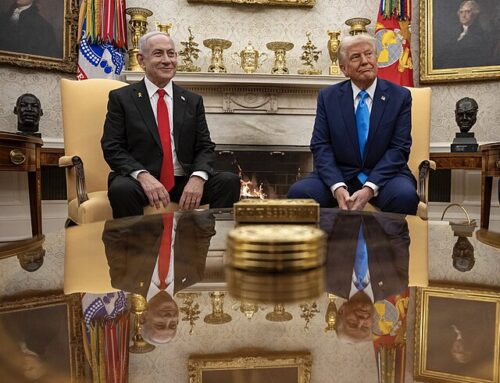| Carlo Strenger |
 The Haaretz columnist and Tel Aviv University professor of psychology, Carlo Strenger, has been desperately casting about for some scenario that can deliver peace. About 15 months ago, this veteran advocate of the two-state solution flirted with one state, although he was actually suggesting a kind of confederation, a halfway point between one state and two.
The Haaretz columnist and Tel Aviv University professor of psychology, Carlo Strenger, has been desperately casting about for some scenario that can deliver peace. About 15 months ago, this veteran advocate of the two-state solution flirted with one state, although he was actually suggesting a kind of confederation, a halfway point between one state and two.
This more recent column takes the form of “An open letter to President Mahmoud Abbas and the Palestinian leadership, from a supporter of the peace process,” arguing that a Palestinian state is within sight if they make some difficult concessions to Netanyahu. I don’t know that I share Carlo Strenger’s optimism about Netanyahu trading Naftali Bennett’s right-wing party for Labor as a coalition partner and thereby proceeding toward a peace agreement, but I’ve long believed it absolutely correct that the repeated incidents of Palestinian violence since Oslo started have undermined the faith of most Israelis in a deal that requires their substantial withdrawal from the West Bank.
Strenger refers to these incidents: the wave of bombings that brought Netanyahu to power for the first time in 1996, the Second Intifada that brought Ariel Sharon to power in 2001, the Hamas takeover of Gaza and the frequent attacks from there since 2006, which ultimately undermined the Olmert-Abbas peace negotiations and returned Netanyahu to power.
Although these manifestations of Palestinian violence have been reciprocated several times over by Israel’s military might and the cruelty of its economic siege of Gaza, Strenger is correct that
the Palestinians need to swallow hard to accommodate Israel’s very real security concerns and agree to some security strictures, such as a possible long-term presence of the IDF in the Jordan Valley. Otherwise, how do they get the stronger party to make material concessions to the weaker one?
It’s also likely that the Palestinians will need to accede to some version of Netanyahu’s demand to recognize Israel as the Jewish state, or at least as the ancestral Jewish homeland (although I wish this were not made into a stumbling block to an agreement). Moreover, the package deal must define down the Palestinian demand for a right of return to compensation and no more than token resettlement in what is now the State of Israel.
A Palestinian concession on the right of return is an absolute requirement for a negotiated agreement, but on most issues there’s a need for both sides to be as flexible as possible. I’m encouraged by a report in the Times of Israel of Secretary of State Kerry’s creative bridging proposals on the Jordan Valley and Jerusalem, and in Israel’s reported receptivity, even as I’m discouraged by Abbas’s reported negativity:
Palestinian sources told AFP that Abbas had rebuffed pressure from Kerry to recognize Israel as a Jewish state. They also said the secretary was proposing a joint Israeli-Palestinian presence to control the West Bank-Jordan border, where Israel has insisted on ongoing IDF control and Abbas has sought an international military presence.
The unnamed Palestinian sources also claimed Kerry had suggested a new formulation for Jerusalem, under which it would be termed the capital of both states without a clear definition of East Jerusalem’s outlines, that Netanyahu had “apparently” agreed to this, and that the Palestinians had rejected it. There was no confirmation of these claims, and Kerry has refused to go into the specifics of his proposals thus far.
In the meanwhile, there is every possibility that a growing impatience among Palestinians will lead to a new intifada that will again dash hopes for peace. I don’t blame them for their impatience, but I do blame them for shortsighted historical memory.



Leave A Comment